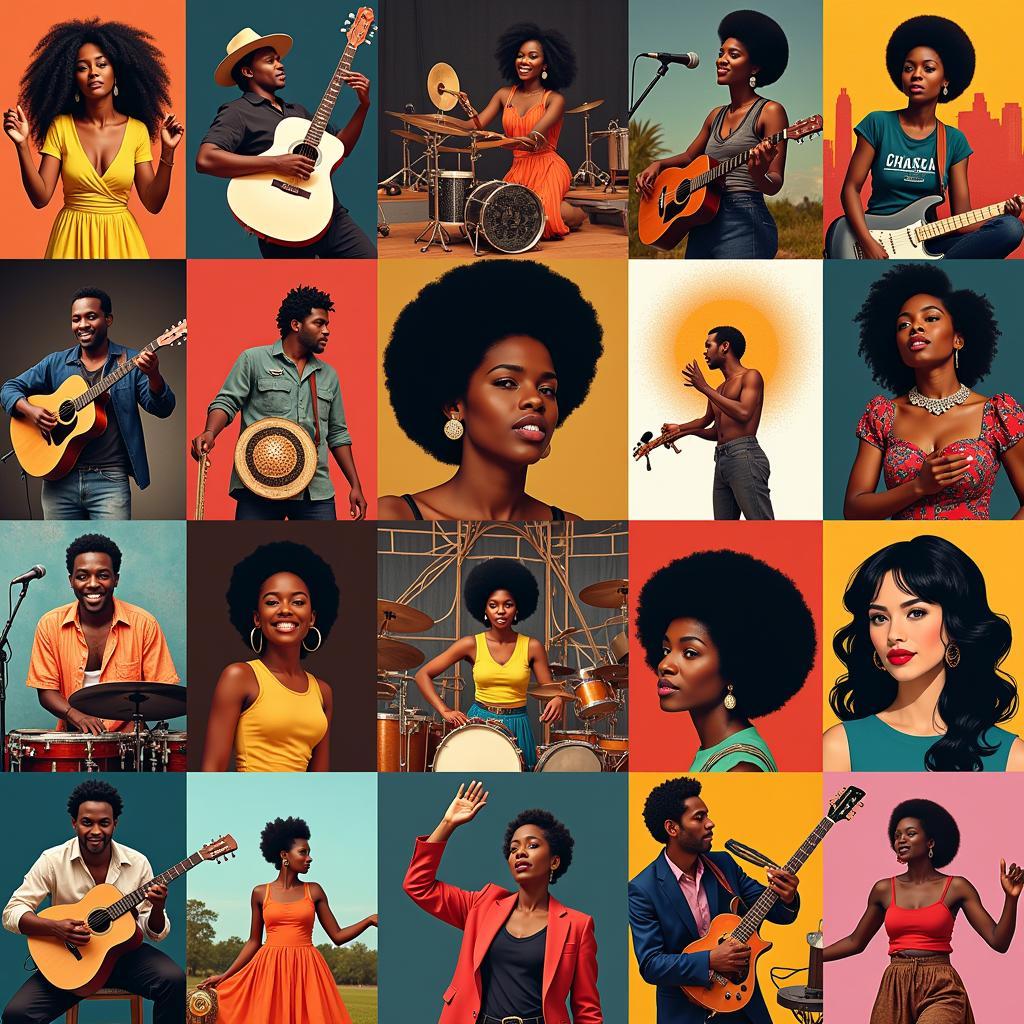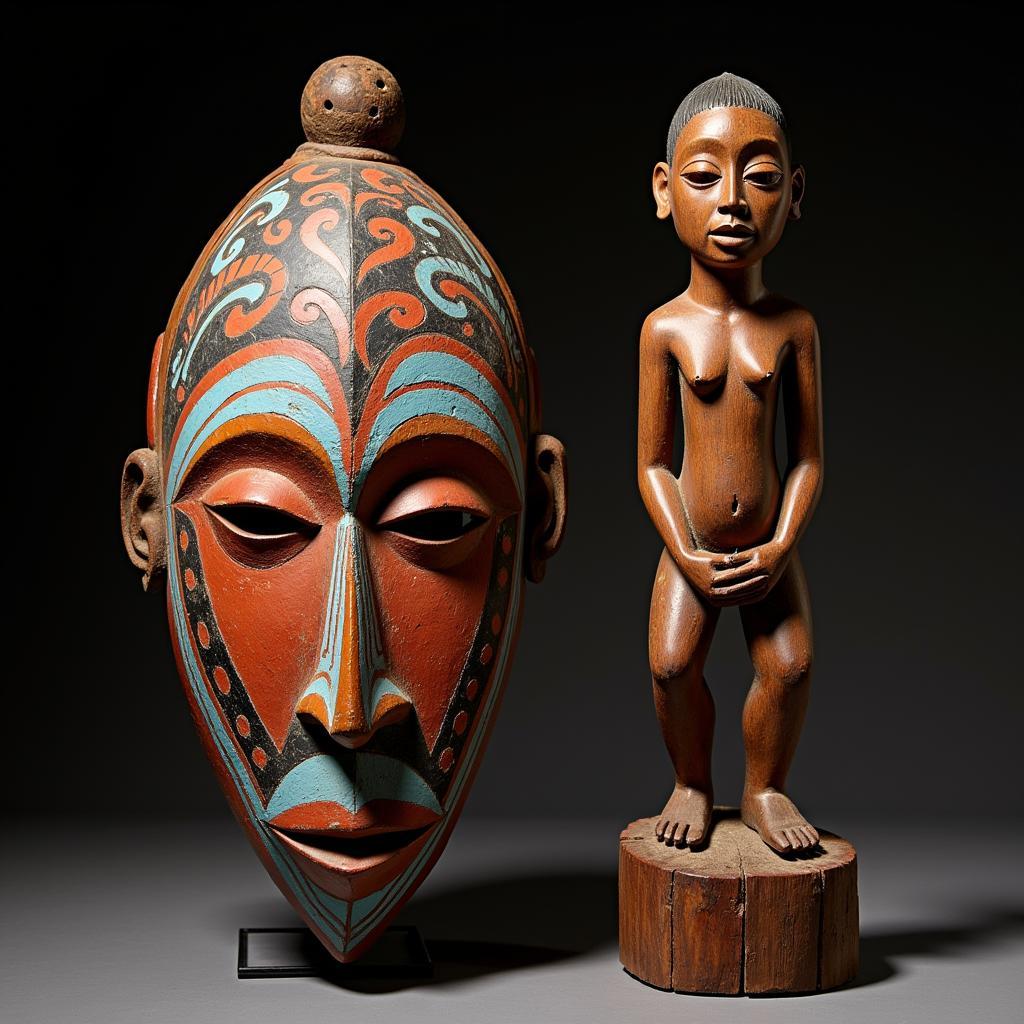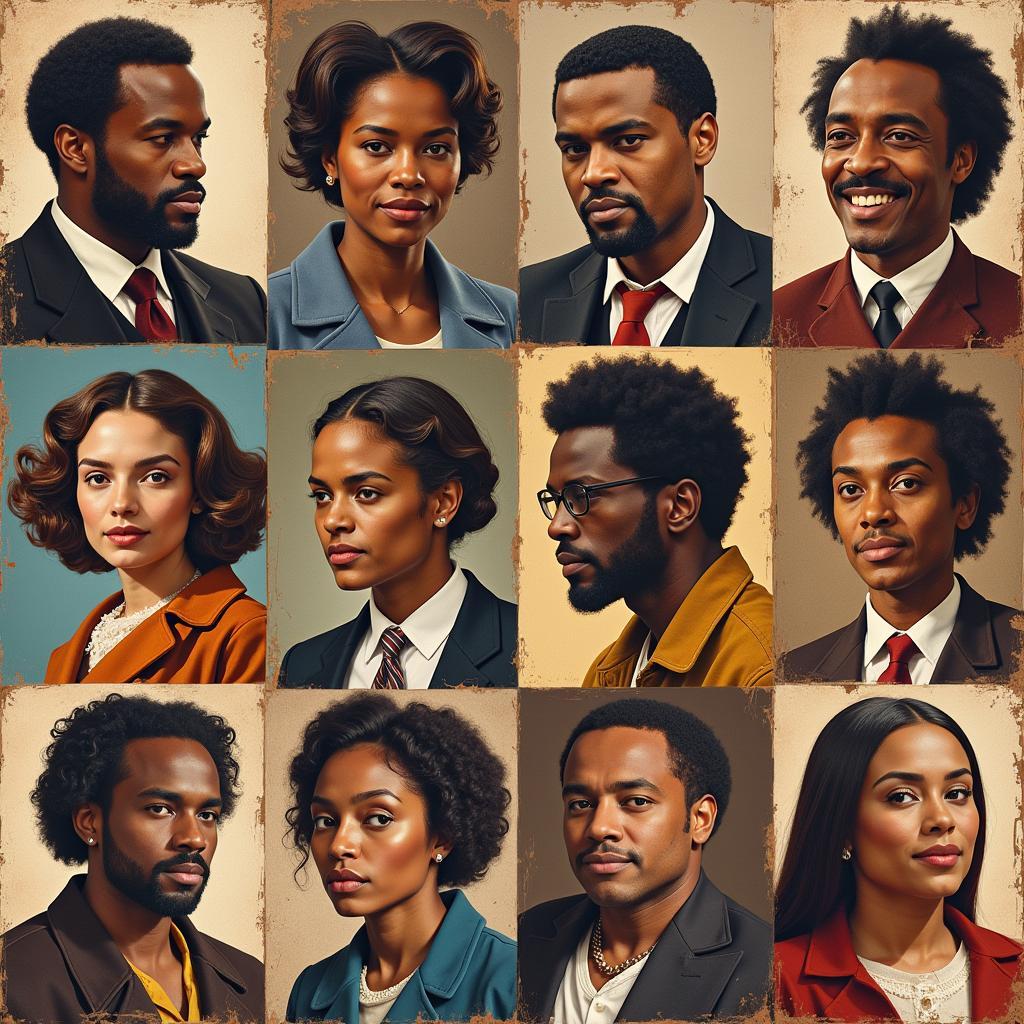Exploring the Rich Tapestry of African American Culture
African American culture stands as a vibrant and influential force, profoundly shaping the social, artistic, and political landscape of the United States. Born from a legacy of resilience and creativity in the face of adversity, this multifaceted culture continues to evolve while honoring its deep-rooted heritage. This essay delves into the historical context, key elements, and enduring impact of African American culture, shedding light on its significance in American and global contexts.
 African American Cultural Expression
African American Cultural Expression
A Journey Through History: From Africa to America
Understanding African American culture necessitates acknowledging the transatlantic slave trade’s brutal history. The forced displacement of millions of Africans to the Americas severed cultural ties while simultaneously planting the seeds for a new, distinct cultural identity to emerge. In the crucible of slavery, African traditions, languages, and beliefs intertwined, laying the foundation for what we recognize as African American culture today.
Despite the dehumanizing conditions they endured, enslaved Africans resisted cultural erasure. Music, particularly spirituals and work songs, became a source of solace, a means of preserving cultural memory, and a tool for covert communication and resistance. These musical traditions would evolve into gospel, blues, and jazz, genres that would profoundly influence American music and beyond.
The Harlem Renaissance: A Cultural Awakening
The turn of the 20th century witnessed a remarkable flourishing of African American art, literature, and music in what became known as the Harlem Renaissance. This cultural movement, centered in Harlem, New York, served as a platform for Black artists to express their experiences, challenge stereotypes, and celebrate their heritage. Writers like Langston Hughes and Zora Neale Hurston gave voice to the Black experience through their poignant prose and poetry. At the same time, musicians like Duke Ellington and Billie Holiday captivated audiences with their innovative jazz compositions and soulful vocals.
The Harlem Renaissance marked a pivotal moment in African American cultural history, fostering a sense of Black pride and identity that resonated across the nation and inspired future generations of artists and activists.
The Enduring Power of Music
Music remains a cornerstone of African American culture, serving as a powerful medium for storytelling, social commentary, and emotional expression. From the soulful melodies of gospel to the rhythmic beats of hip-hop, African American musical genres have continuously pushed creative boundaries and left an undeniable mark on the global soundscape.
 African American Musical Heritage
African American Musical Heritage
The blues, born out of the struggles of Black Americans in the rural South, gave rise to rock and roll, influencing legendary artists like Elvis Presley and The Rolling Stones. Similarly, jazz, with its improvisational nature and complex harmonies, revolutionized musical forms and continues to captivate audiences worldwide.
Food, Family, and Community
Food plays a central role in African American culture, representing a tangible connection to ancestral roots and a celebration of community. Soul food, known for its flavorful dishes like fried chicken, collard greens, and macaroni and cheese, originated in the American South, reflecting the ingenuity of enslaved Africans who transformed limited ingredients into culinary staples. Today, soul food restaurants can be found across the United States, serving as gathering places for families and friends to connect and share in the rich culinary traditions passed down through generations.
Beyond the delicious cuisine, African American culture emphasizes the importance of family, community, and collective support. Extended family networks often play a vital role in raising children, providing emotional support, and preserving cultural heritage.
FAQs about African American Culture
1. What are some common misconceptions about African American culture?
One common misconception is that it is a monolithic entity. In reality, African American culture is incredibly diverse, reflecting the experiences and perspectives of individuals from various regions, socioeconomic backgrounds, and walks of life.
2. How has African American culture influenced American society as a whole?
Its influence permeates numerous facets of American life, from music and fashion to language and cuisine. For example, words and phrases originating from African American Vernacular English (AAVE) have become integrated into mainstream American English.
3. What are some ways to learn more about and appreciate African American culture?
Engaging with its literature, music, art, and cuisine offers valuable insights. Visiting museums dedicated to African American history and attending cultural events can also deepen understanding and appreciation.
Seeking Further Exploration?
To delve deeper into the captivating world of African American culture, we recommend exploring these related articles:
Need assistance or have questions? Contact us at +255768904061 or [email protected]. Our dedicated customer support team is available 24/7 to assist you. You can also visit us at Mbarali DC Mawindi, Kangaga, Tanzania.

